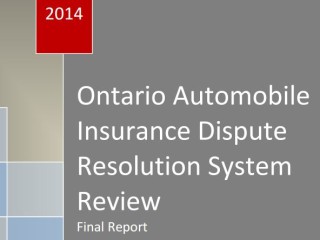Motion for the production of non-party Children’s Aid Society’s file is speculative and an unmeritorious fishing expedition that amounts to an unwarranted invasion of privacy.
Released October 11, 2016 | Full Decision [OTLA Document Bank]
The defendant moved to compel production of the non-party Children’s Aid Society (CAS) file pertaining to the plaintiff and her children, for up to five years before the date of the motor vehicle collision (MVA).
The defendant had argued that because the plaintiff has claimed mental and psychological injury from the MVA, it is entitled to fully explore whether other factors contributed to those conditions. The defendant argued that it would be unfair to have to proceed to trial without full disclosure of all CAS records regarding the plaintiff and her children.
George J. first addressed whether leave ought to be granted given that the action had already been set down for trial. He concluded that because no substantial or unexpected change in circumstance had occurred since the matter was set down for trial, leave should not be granted.
However, George J. went on to address whether the CAS file is relevant in any event.
George J. concluded that the CAS file is not relevant. He noted that he would have considered granting an order were it confined to the production of psychological records contained in the CAS file, however, there were no such documents included in the CAS file. George J. cited with approval Cavarzan J. in Finlayson v. Taylor Leibow Inc., [2008] O.J. No. 2295, noting:
This motion to enforce disclosure of CAS records in question amounts to a speculative and unmeritorious fishing expedition for evidence to assist the defence.
In dismissing the motion, George J. concluded as follows:
I believe the defendant’s request amounts to an attempt to gain information which might assist in an attack upon the plaintiff’s credibility. The fact something might touch upon credibility does not equate to relevance. To the extent there might be relevant information within the file, it is significantly outweighed by the unwarranted invasion of privacy that would result. In other words, ordering production would be a disproportionate response. Any assistance it might provide the defendant and/or court, is outweighed by its intrusiveness.
Counsel for the Plaintiffs: James Armstrong
Counsel for the Defendant: Olivier Guillaume
Read the full decision on the OTLA Document Bank











